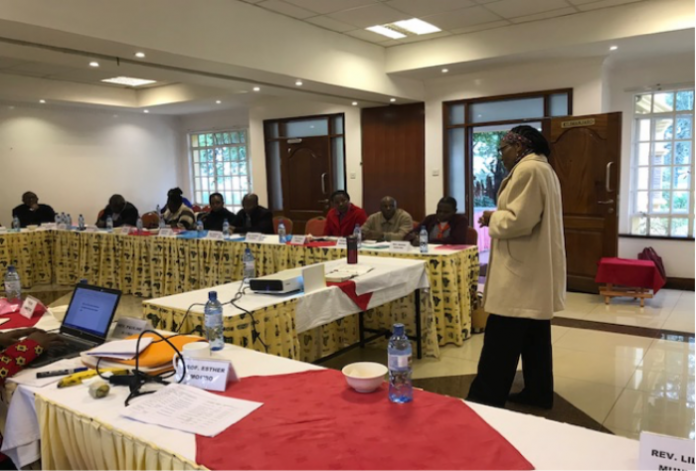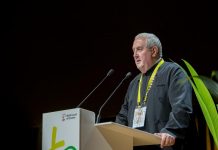Are church schools in Kenya engaging with youth the best way they can? The World Council of Churches Ecumenical HIV and AIDS Initiatives and Advocacy (WCC-EHAIA) programme helped 22 principals, education secretaries and church leaders ponder this question when they met at St Julian’s Centre in Limuru.
They asked themselves: what are the challenges facing learners and teachers? What is the role of the churches in dealing with the life issues of young people?
Participants found there is a disconnect between school curriculum and the issues of young people. For example, while there is a course on guidance and counseling in the schools, the information is lacking on issues that concern youth, such as sexual reproductive health and rights.
“The books we have on guidance and counseling are lacking in substance,” said one guidance and counseling teacher.
The teachers were in agreement that the current curriculum of eight years of primary education, four years of high school and four years of university had no room for discussing life issues inside or outside class. The curriculum is exam-oriented with little room for learners to raise issues of concern or for teachers to interact with students on social issues.
According to the teachers, the WCC-EHAIA seminar was timely – and the time to intervene is overdue.
Rev. Rahab Kariuki, an Anglican clergywoman living with HIV, shared her personal experience and exposed the gaps in knowledge. “The primary school curriculum on HIV still contains outdated information and needs revision,” she said.
A Christian Union Patron in a national girl’s school said, “There is so much HIV stigma in the staffroom, this serves to show how much stigma is in the classroom and in the dormitory.”
One of the immediate impacts of the two-day meeting was that a teacher who tested HIV positive in 1992 disclosed her status in public for the first time. She said: “The stigma in the family, in the church and in school made me zip my mouth about my status,” so she decided to bear the brunt of the virus alone.
As a result of the interactions among the teachers in the seminar, and the creation of a safe space, she disclosed that she had been living with the virus since 1992. This was the first time she shared her story in a public gathering.
“I kept my silence because of the stigma I experienced from both family and community. The testimony of Rev. Rehab Kariuki empowered me to speak. I will continue to speak because I have been empowered to do so.”
World Council of Churches, oikoumene.org















